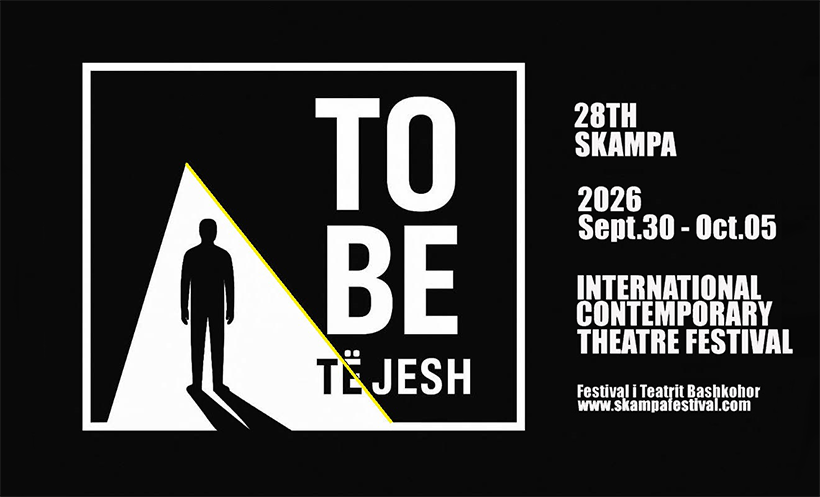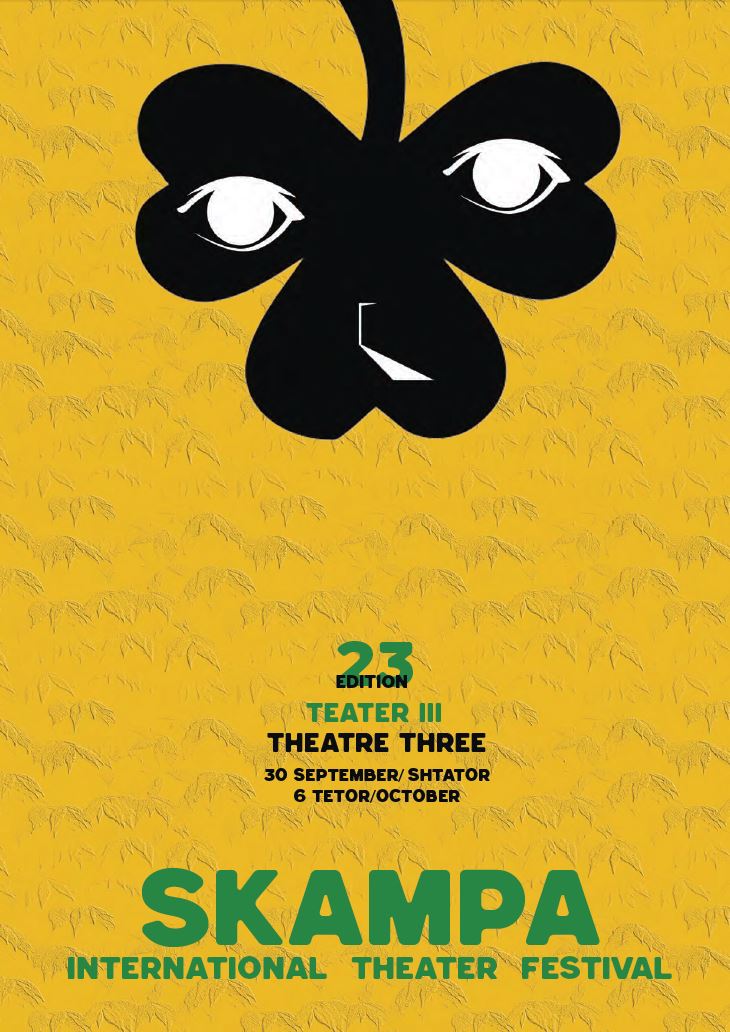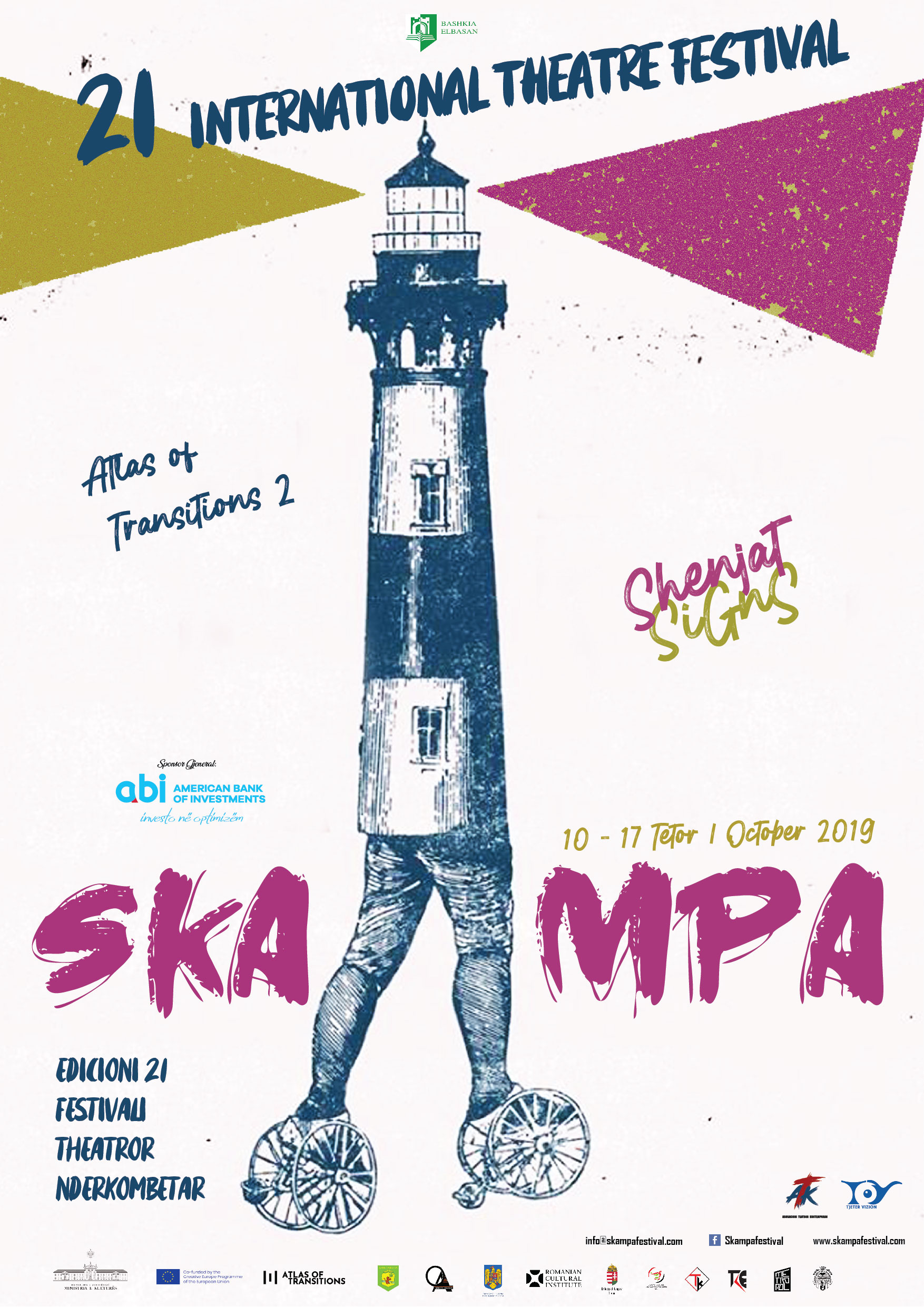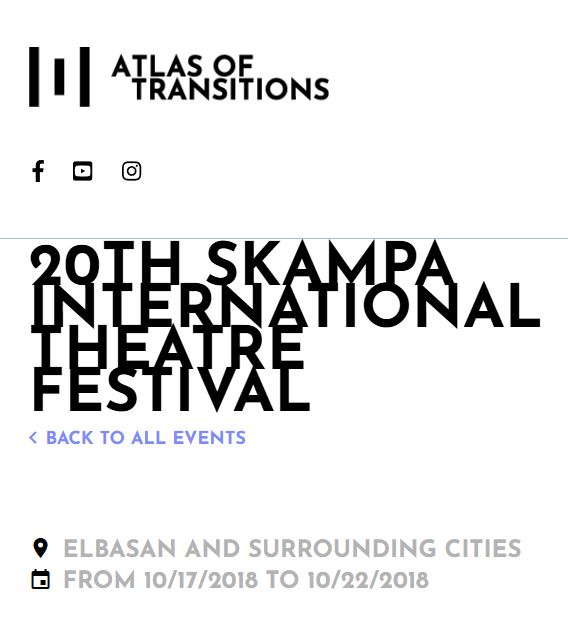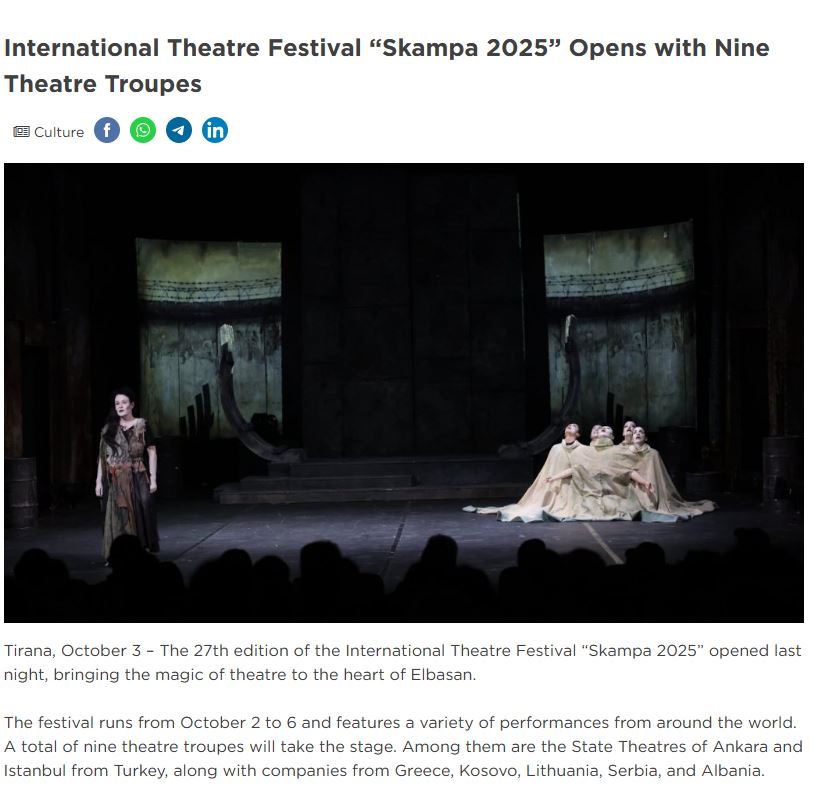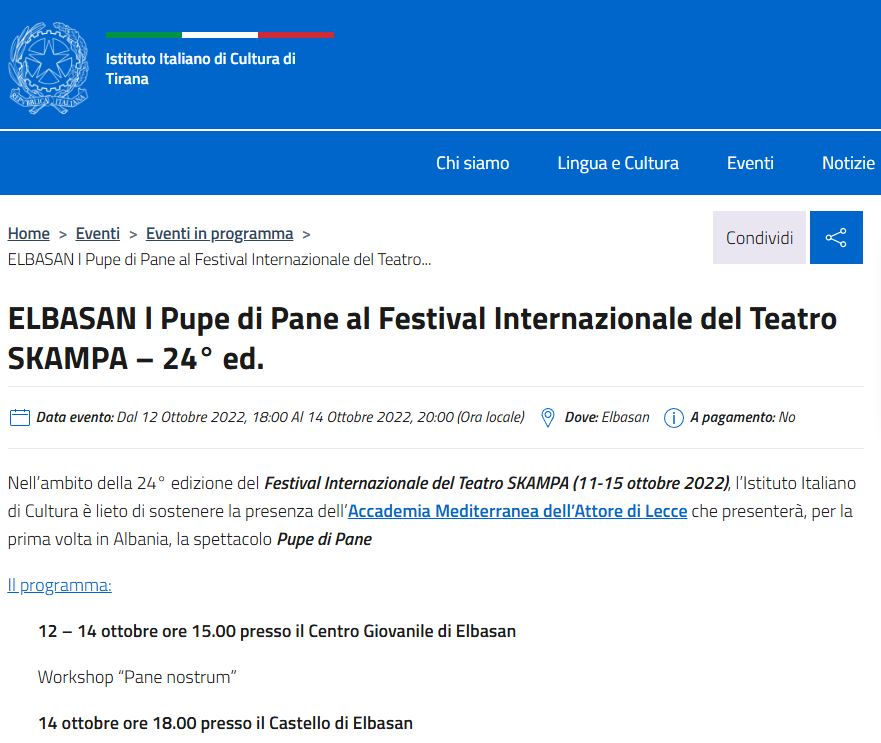Up Next: “TE JESH / TO BE”
28th Edition Sep.30 – Oct.05
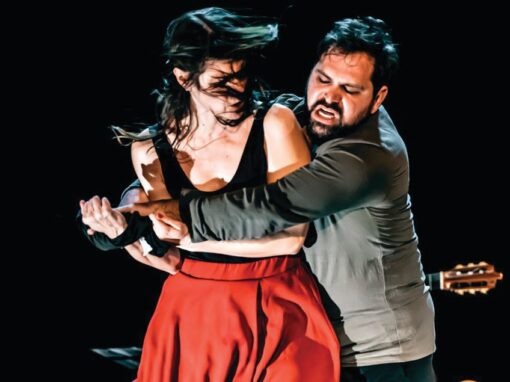
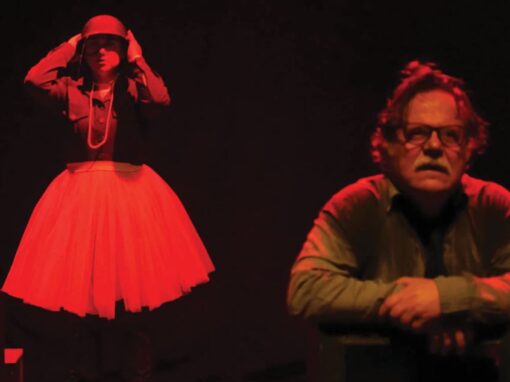
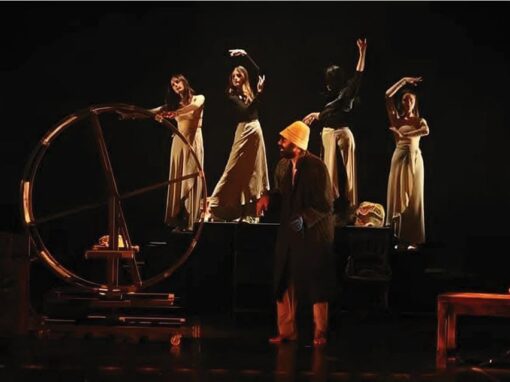
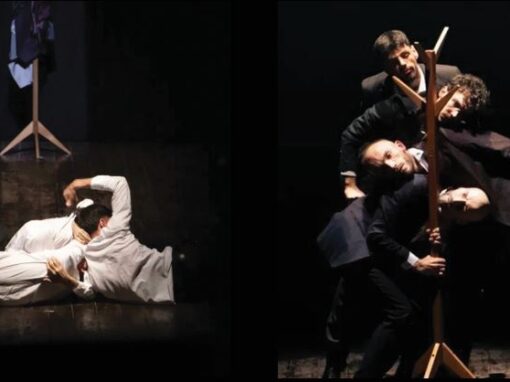
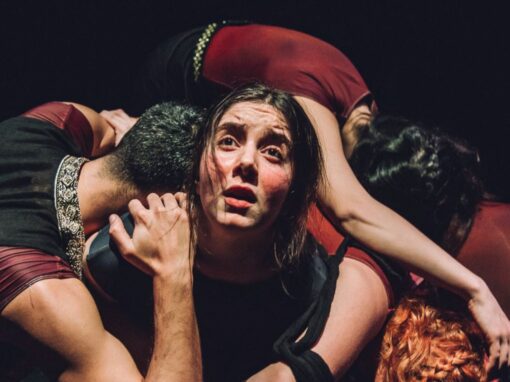
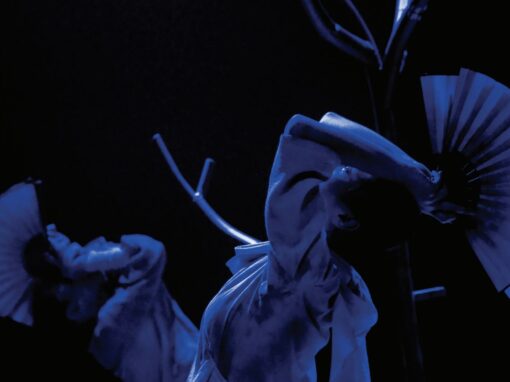
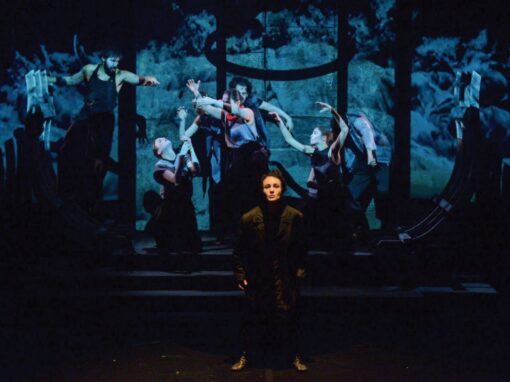
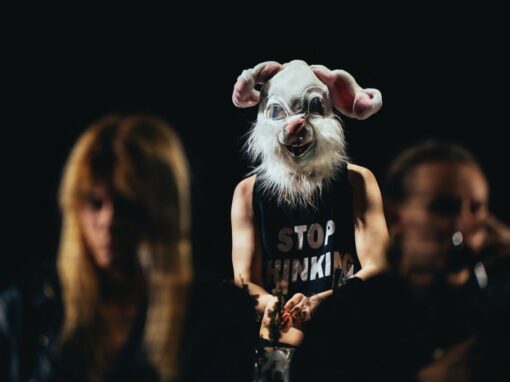
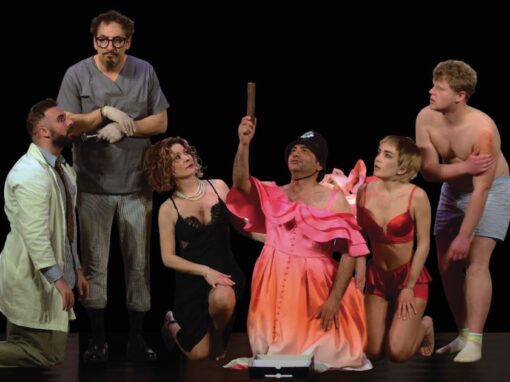
Thursday – October 2-6 2025
EDITION 27
Thursday – December 6-10 2024
EDITION 26
Thursday – December 6-10 2024
EDITION 25
25 YEARS OF SKAMPA
GATES OF TOMORROW
Thursday – December 6-10, 2023
Edition 25
THEATRE SONG
October 11 – 15, 2022
Edition 24
THEATRE THREE
30 September – 06 October, 2021
Edition 23
TRACES
December 29, October 04 2020
Edition 22
ATLAS OF TRANSITION SIGNS
October 11 – 17, 2019
Edition 21
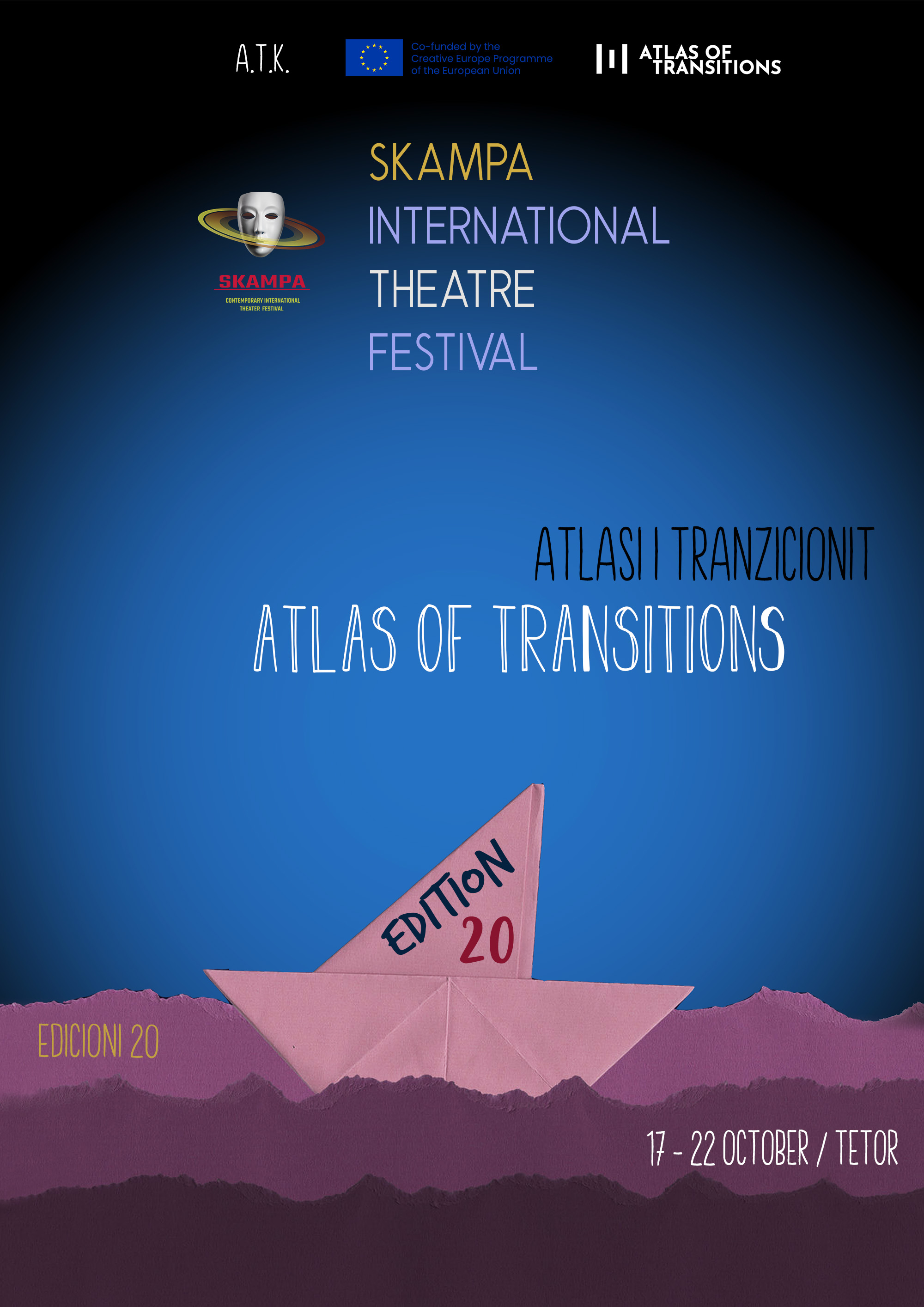
ATLAS OF TRANSITION
October 17 – 22, 2018
Edition 20
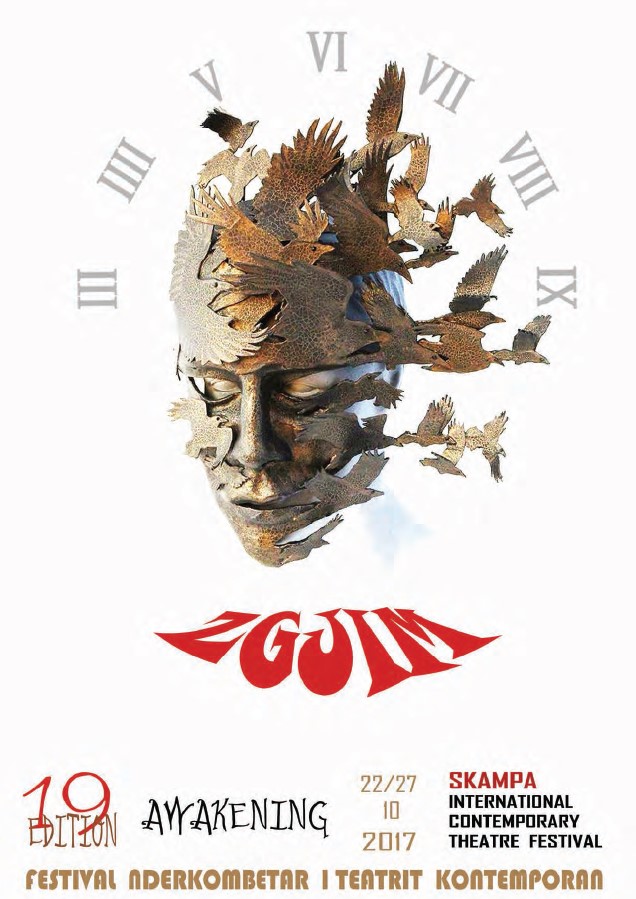
AWAKENING
October 22 – 27, 2019
Edition 19
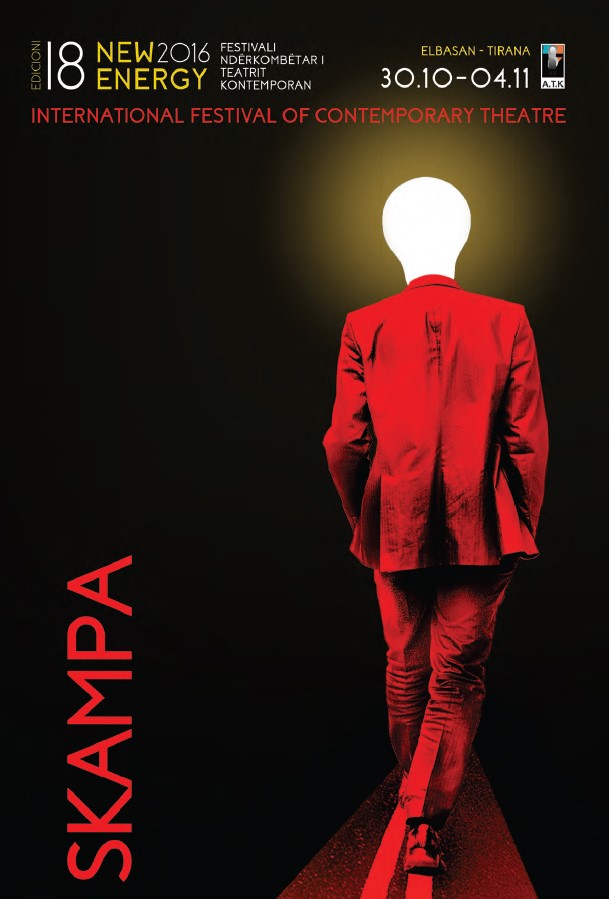
NEW ENERGY
October 30 – November 4, 2016
Edition 18
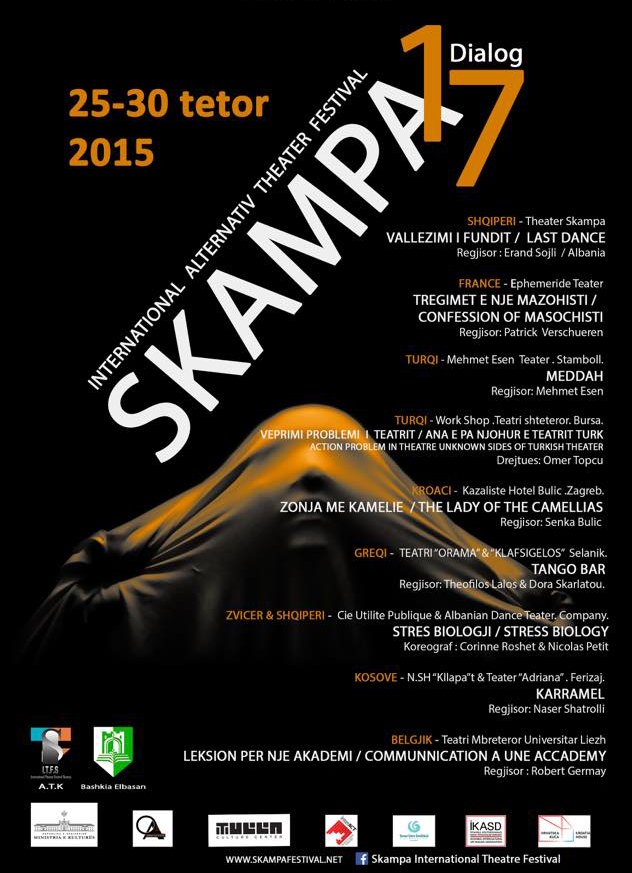
DIALOG
October 25 – 30, 2015
Edition 17

ARKITEKTURA E NDJENJES
October 13- 17, 2013
Edition 15
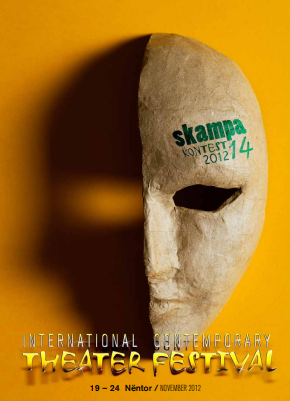
KONTEST
November 14 – 24, 2012
Edition 14
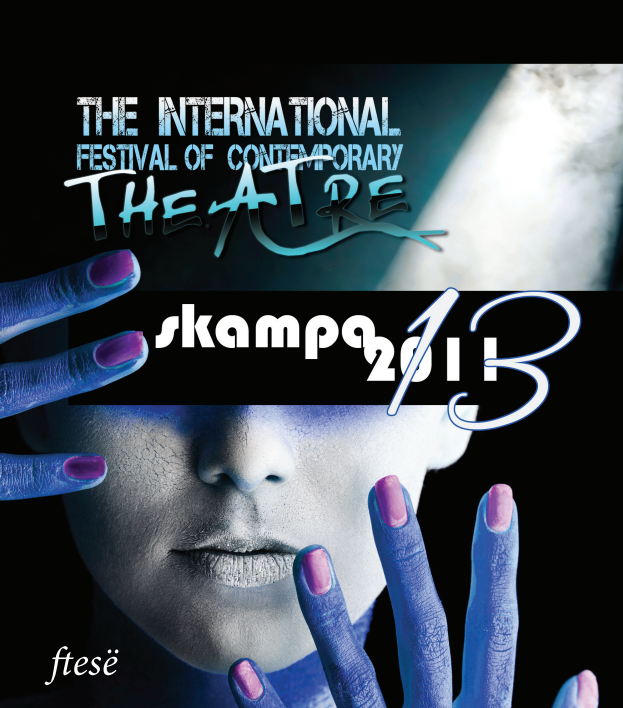
THEATRE
November 19 – 24, 2011
Edition 13
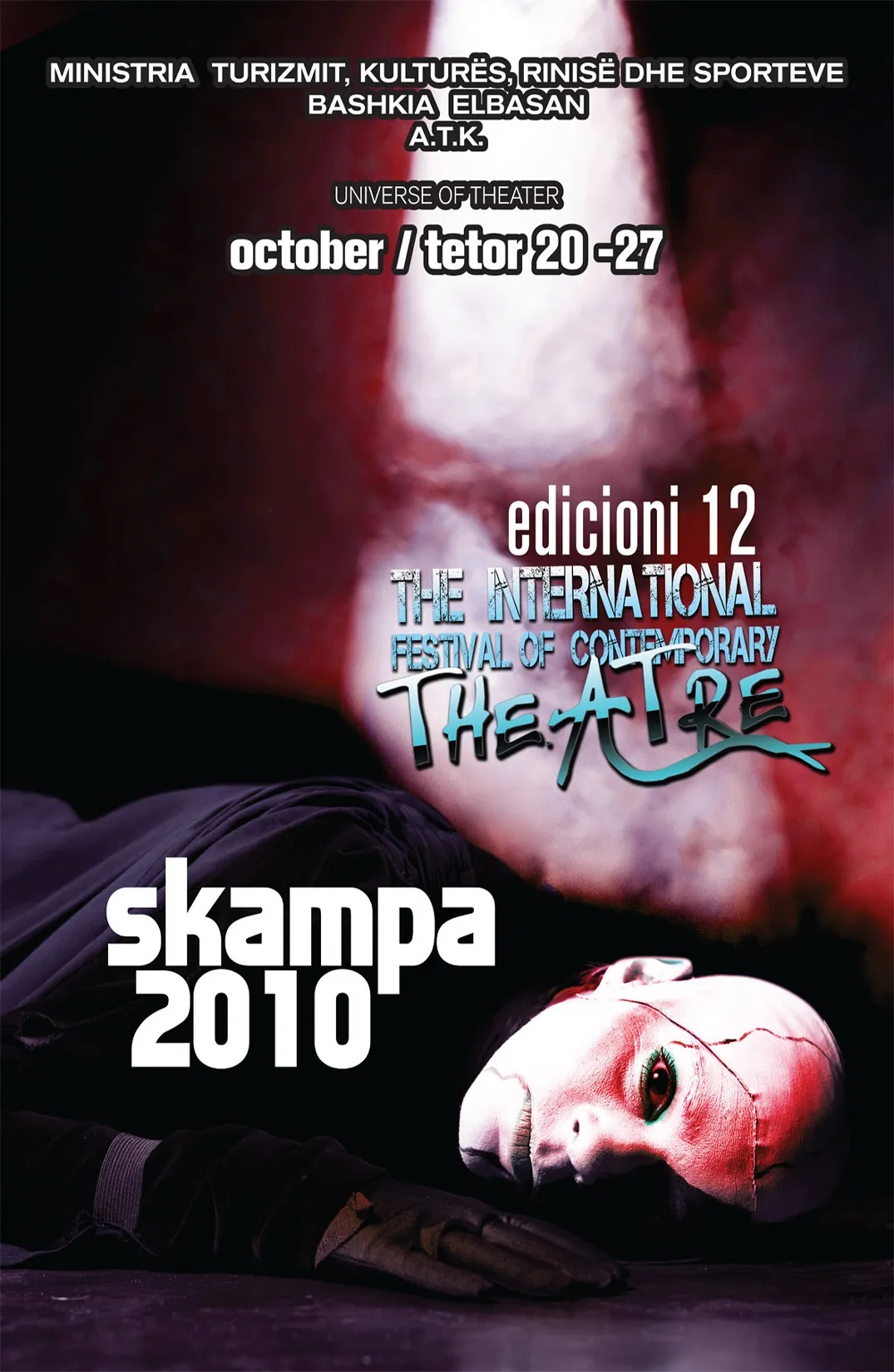
UNIVERSE OF THEATRE
October 20 – 27, 2010
Edition 12
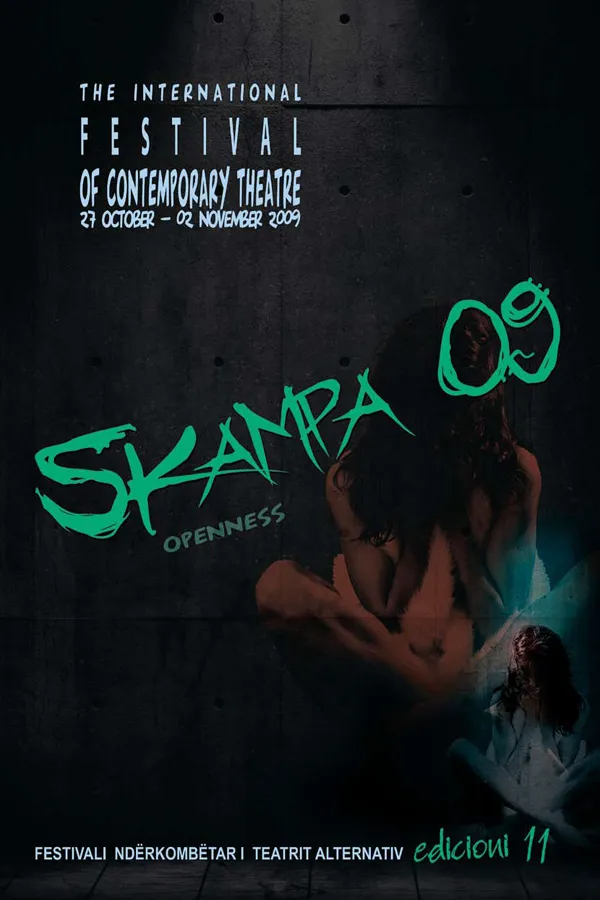
OPENNESS
October 27 – 02 November, 2009
Edition 11
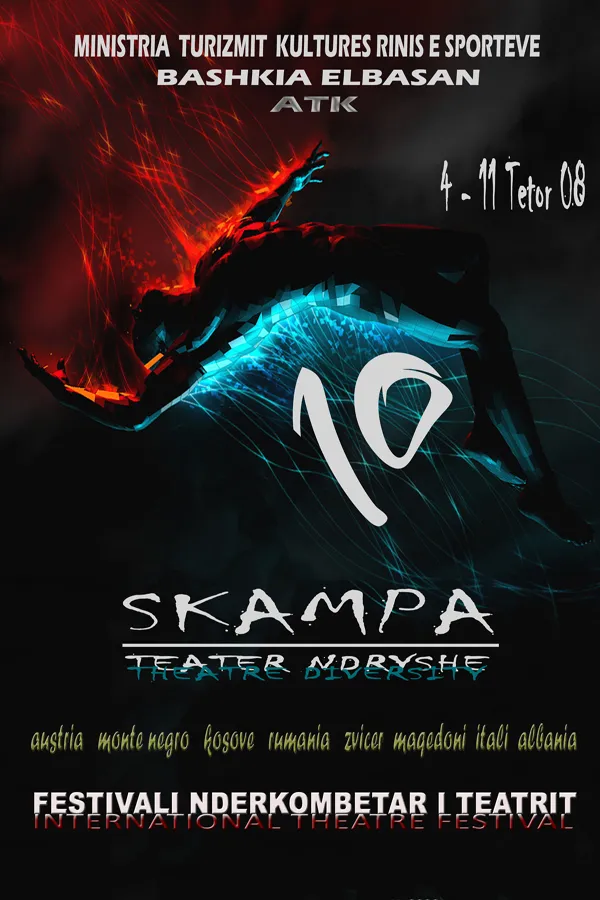
THEATER DIVERSITY
October 04 – 11, 2008
Edition 10

THEATER OF SENSATION
October 25 – 31, 2007
Edition 07
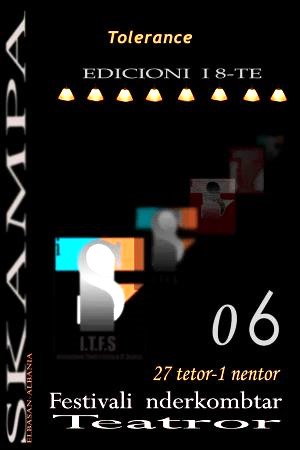
THEATER OF SENSATION
October 07 – 31, 2006
Edition 08
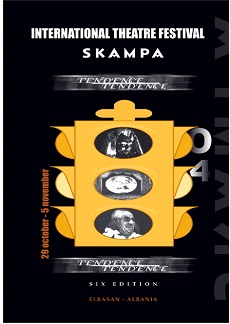
TENDENCE
October 29 – November 29, 2004
Edition 06
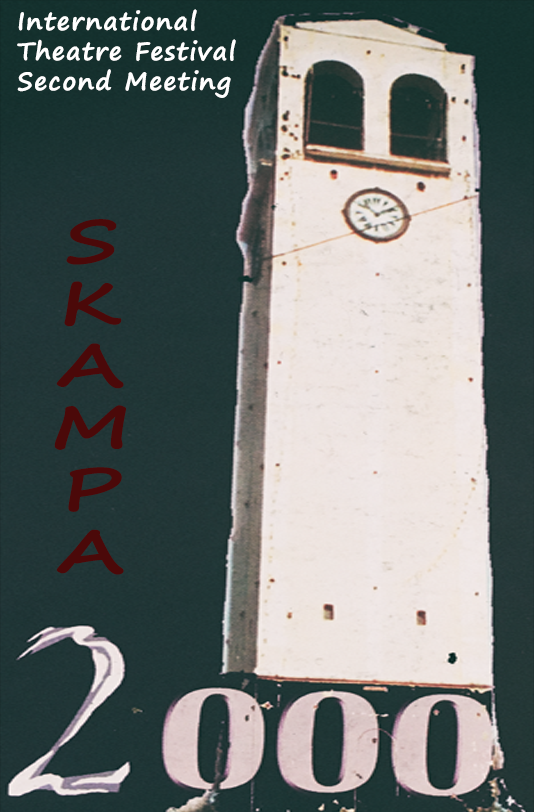
SECOND EDITION
October 28 – November 05, 2000
Edition 02

SECOND EDITION
Dicember 15-21, 1999
Edition 01
Skampa International Theatre Festival was founded in 1999, at a symbolic turning point between centuries, a moment that not only marked a shift in time, but also inspired new artistic visions and contemporary creative concepts. Today, it stands as one of Albania’s leading cultural events, held annually every autumn in the historic city of Elbasan. Dedicated to contemporary theatre and intercultural dialogue, the festival showcases major trends from both Albanian and international stages, welcoming more than 4000 artists and over 270 premieres from countries across Europe, the Americas, and beyond.
Its rich program spans physical theatre, classical productions, and experimental performance, complemented by workshops, presentations, and exhibitions. Organized by the Albanian Contemporary Theatre Association (A.T.K.), with the support of the Ministry of Culture and the Municipality of Elbasan, the festival celebrates artistic exchange, cultural diversity, and creative innovation on an international platform.
“Skampa Festival is a living platform where contemporary theatre breaks free from convention and opens itself to new forms, new voices, and new cultural energies. It exists to create dialogue between artists and audiences, between local identity and global ideas, keeping theatre in constant movement toward the future.
Theatrical Performances
Live theatrical performances presented on the Skampa Theatre stage, combining strong artistic expression with an intimate historic setting.
Workshops
Educational workshops held within the Skampa Theatre Festival, bringing together artists, professionals, and young creatives through practical training and exchange.
Street Theatre
Open-air performances that transform public spaces into vibrant stages, engaging audiences directly within the city during the festival.
NEWS FEED
Atlas Of Transitions
Skampa International Theatre Festival is part of the EU-funded Atlas of Transitions project, promoting contemporary theatre through international collaboration.
The festival contributes to cultural exchange and artistic mobility by connecting local and European theatre practices.
Edition 27 Kick off
International Theatre Festival Skampa 2025 officially opens with the participation of nine theatre troupes, marking the start of a vibrant program of performances and cultural exchange.
The festival brings together local and international artists, reinforcing Skampa’s role as a key platform for contemporary theatre and international collaboration.
"Marina & Ulay" at the International Theater Festival "SKAMPA" in Albania
The Embassy of Romania in Tirana announces the International Theatre Festival Skampa as a major cultural event, highlighting its role in promoting international artistic dialogue and cooperation.
The festival brings together theatre professionals from different countries, strengthening cross-border cultural exchange.
ELBASAN l Pupe di Pane al Festival Internazionale del Teatro SKAMPA – 24° ed.
The Italian Cultural Institute in Tirana announces the participation of the Italian performance Le Pupe di Pane at the Skampa International Theatre Festival in Elbasan.
The event highlights Italy’s contribution to the festival and strengthens cultural dialogue through contemporary theatre.
